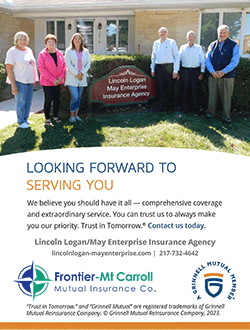A California recovery program keeps watch on addicted health workers —
but not doctors
 Send a link to a friend
Send a link to a friend
 [December 20, 2024]
By KRISTEN HWANG/CalMatters [December 20, 2024]
By KRISTEN HWANG/CalMatters
California doctors struggling with addiction often don’t want anyone to
find out, especially the state board that has the power to revoke their
medical license.
“Doctors are afraid of the medical board,” said Dr. Greg Skipper, a
Southern California addiction specialist. “The board is a blunt
instrument. It’s basically lawyers and cops.”
When doctors are afraid, they hide, which experts and regulators say is
dangerous. That’s why, in the coming year, the California Medical Board
plans to ask lawmakers to allow it to create an alternative recovery
program that’s disconnected from its disciplinary power.
Current law already lets state licensing boards create recovery programs
for health workers, but the medical board hasn’t made one for more than
a decade. Doctors call the existing law poorly written, ineffective and
harmful.
They point to the experience of nurses enrolled in a version of the
program currently allowed by state law who say they feel trapped by it.
Some nurses regard the programs as too punitive. Doctors want a program
that prioritizes early intervention and treatment of substance use
disorders or mental illness over punishment.
They could face opposition to their proposal. The patient advocates who
lobbied for the current law are opposed to the approach the doctors
want. They favor the transparency and discipline in the existing
programs.
Both sides say they want to protect patient safety.
The doctors’ proposed program would run independently from the licensing
board and grant confidentiality to doctors who remain sober and do not
endanger patients. It would be required to report to the board
noncompliant doctors or those whom it believes cannot practice safely.
It would also require other licensed doctors to report if they suspect a
colleague of impairment. Doctors who are suspected of harming patients
would not be exempt from discipline.
Other health workers, such as dentists and nurses, are not included in
the medical board’s proposed legislation.
“At its most basic level, we hope that it will cause physicians…to get
into treatment sooner rather than later, so that treatment happens
before any patient harm would occur in our system,” Medical Board
President Kristina Lawson said.
Without a recovery program, the medical board can only investigate
reports of patient harm after they have happened, a process which
sometimes takes years.
California is one of few states without a recovery program — commonly
called physician health programs — that offers doctors the chance to
seek treatment and help while monitoring them for sobriety. Between 10%
to 12% of health care workers will struggle with substance abuse
throughout their career, research shows.
Experts with experience running programs in other states say
confidentiality and recognition of addiction as a chronic illness are
crucial to getting doctors to admit when they’re struggling.

“The single most important thing physician health programs offer is a
safe harbor,” said Dr. Paul Earley, former medical director of Georgia’s
physician health program, who testified during a recent California
Medical Board meeting. “I can tie up to this dock and get some care, and
I’m not going to get hammered.”
In other states, programs are typically administered by an independent
nonprofit organization that is responsible for evaluating doctors
suspected of impairment, managing their treatment and monitoring them
for five years.
Patient advocates say this approach is unsafe. They argue that
California’s medical community has tried this before and failed. In
2008, the board ended a similar program after a series of audits
suggested doctors evaded drug testing and worksite monitoring. Patient
advocates also argue that confidentiality only lets dangerous doctors
hide from consequences.
“Whatever transparency that the public has had will disappear,” said
Michele Monserratt-Ramos, a patient advocate with Consumer Watchdog.
Monserratt-Ramos, whose fiance died in 2003 after an operation from a
doctor with a history of substance abuse, was one of the advocates who
lobbied for the medical board to abolish the program in 2008.
Monserratt-Ramos believes the state’s current laws and regulations,
which require strict oversight of doctors with addictions and penalties
for relapse, are working as intended.
[to top of second column]
|
 “We feel there were standards set in
place that protected everybody, and the board is willing to dispose
of them,” Monserratt-Ramos said.
Lawson said the board acknowledges skepticism of this new approach
because of the previous program’s spotty track record. However,
Lawson said plenty of evidence from other states shows that programs
such as the one it is proposing are effective.
“My belief, and I think that the board shares the
belief that not having a program puts patients at greater risk,” she
said.
Complaints about other addiction recovery programs
Previous attempts to create a program for California doctors under
the current law — such as those that already exist for nurses,
dentists, and other health professionals — have stalled. Those
recovery programs are supposed to be a voluntary alternative to
permanent and public discipline, but they still must adhere to the
same regulations that govern disciplinary proceedings for
rule-breaking workers. Doctors say that defeats the purpose.

Many of the criticisms raised by doctors’ groups have been expressed
by nurses during recent Board of Registered Nursing meetings.
Nurses say they’ve been saddled with thousands of dollars of debt,
prohibited from working for months on end despite documented
sobriety and caught in a cycle of constantly changing program
requirements.
California’s regulations have a “draconian reputation” among other
states, Georgia addiction specialist Earley said. During his time
leading Georgia’s physician health program, Earley said he counseled
doctors on multiple occasions that they should not accept training
opportunities or jobs in California because of their involvement in
a recovery program.
That kind of system leads to doctors and other health professionals
hiding their problems from authorities, which is dangerous for
patients, said California addiction specialist Skipper.
Medical board can suspend doctors
Only 141 physicians are on probation for abusing substances,
according to the medical board.
“They ought to have like 2,000 people in monitoring. They’re missing
a lot of cases,” based on the number of doctors in California, said
Skipper, who ran Alabama’s physician health program for more than a
decade.
Ramos, with Consumer Watchdog, said it’s hard to say whether the
state is catching enough impaired health workers, but the law should
stand as-is. Doctors who cause patient harm due to substance abuse
or mental illness should face consequences, Ramos said.
“If we look at a comparison when someone is harmed or dies in a car
accident, there’s consequences…They continue to come forward with
more legislation and increase those consequences and strengthen them
because lives have been lost. How is it any different behind the
walls of the hospital?” Ramos said.
But experts say successful programs are not meant to help impaired
physicians evade consequences. They are meant to intervene before a
doctor harms anyone, said Dr. Chris Bundy, executive medical
director of the Washington Physicians Health Program and chief
medical officer of the Federation of State Physician Health
Programs, who testified during a recent medical board meeting.
Bundy said he meets regularly with his Washington medical board
staff to report program results and discuss anonymized cases that
may need to be reported for discipline. Washington state law, in
contrast to California’s regulations, also gives him more
flexibility to exercise his judgement in how participants are
monitored and ensure their chronic illness needs are met, Bundy
said.
Ninety-two percent of Washington state participants have had clean
records over five years and reported feeling burned out less than
half as much as the general physician population. To Bundy, that’s
success.
“It’s not about getting through this program. It’s about, how does
this program change your life in a way that is transformative and
that you’re grateful for,” Bundy said.
___
This story was originally published by CalMatters and distributed
through a partnership with The Associated Press.
All contents © copyright 2024 Associated Press. All rights reserved |